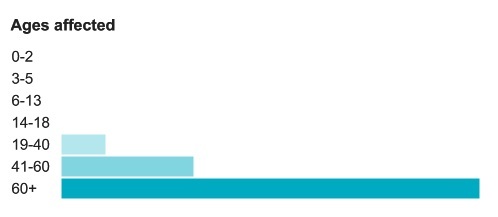
New Alzheimer’s drug shows early promise
Why it is in news?
- The long quest for a medication that works to treat Alzheimer’s reached a potentially promising milestone on Wednesday.
- For the first time in a large clinical trial, a drug was able to both reduce the plaques in the brains of patients and slow the progression of dementia.
All about Alzheimer
- It’s a progressive disease that destroys memory and other important mental functions.
- Also called: senile dementia.
- Symptoms-Requires a medical diagnosis -Memory loss and confusion are the main symptoms.
- Occurances-Very common-More than 10 million cases per year (India)
- Requires a medical diagnosis Lab tests or imaging not required Chronic: can last for years or be lifelong Brain cell connections and the cells themselves degenerate and die, eventually destroying memory and other important mentalfunctions.
- Memory loss and confusion are the main symptoms. No cure exists, but medication and management strategies may temporarily improve symptoms.
- Ages affectedPeople may experience:
- Cognitive:
- mental decline, difficulty thinking and understanding, confusion in the evening hours,
- delusion, disorientation, forgetfulness, making thingsup, mental confusion, difficulty concentrating, inability to create newmemories, inability to do simple maths, or inability to recognise commonthings Behavioural: aggression, agitation, difficulty with self care, irritability, meaningless repetition of own words, personality changes,restlessness, lack of restraint, or wandering and getting lostMood: anger, apathy, general discontent, loneliness, or mood swings
- Psychological: depression, hallucination, or paranoia
- Also common: behavioral symptoms, inability to combine muscl
 About experiment
About experiment- Aside from a couple of medications that can slow memory decline for a few months, there is no effective treatment for Alzheimer’s, which affects about 44 million people worldwide.
- It is estimated that those numbers will triple by 2050.
- The trial involved 856 patients from the U.S., Europe and Japan with early symptoms of cognitive decline.
- They were diagnosed with mild cognitive impairment or mild Alzheimer’s dementia, and all had significant accumulations of the amyloid protein that clumps into plaques in people with the disease.
- In the data presented on Wednesday, the highest of the five doses of the new drug — an injection every two weeks of 10 mg per kg of a patient’s weight — reduced amyloid levels and slowed cognitive decline when compared with patients who received placebo.
SourceThe Hindu, Apollo Hospitals

